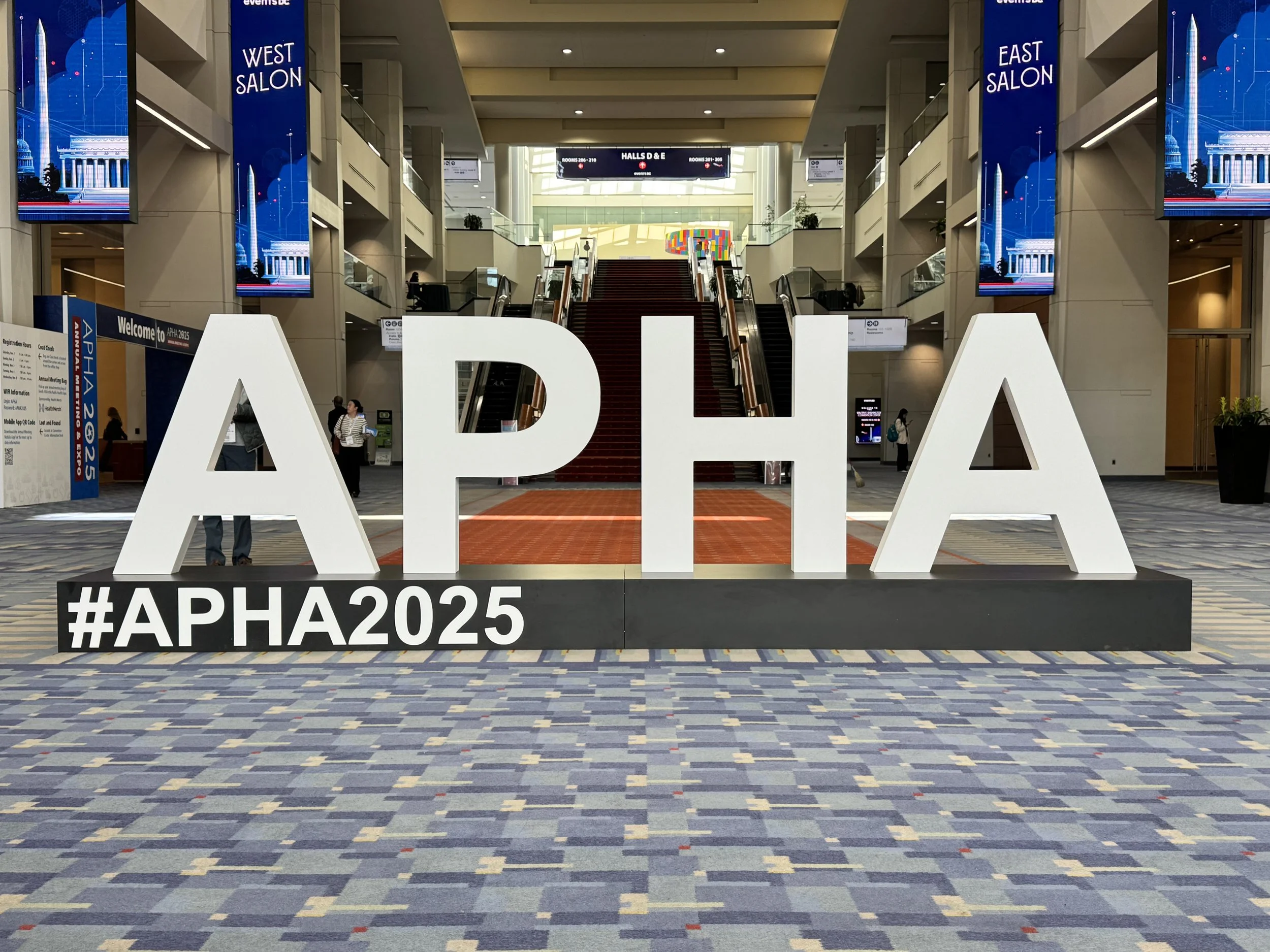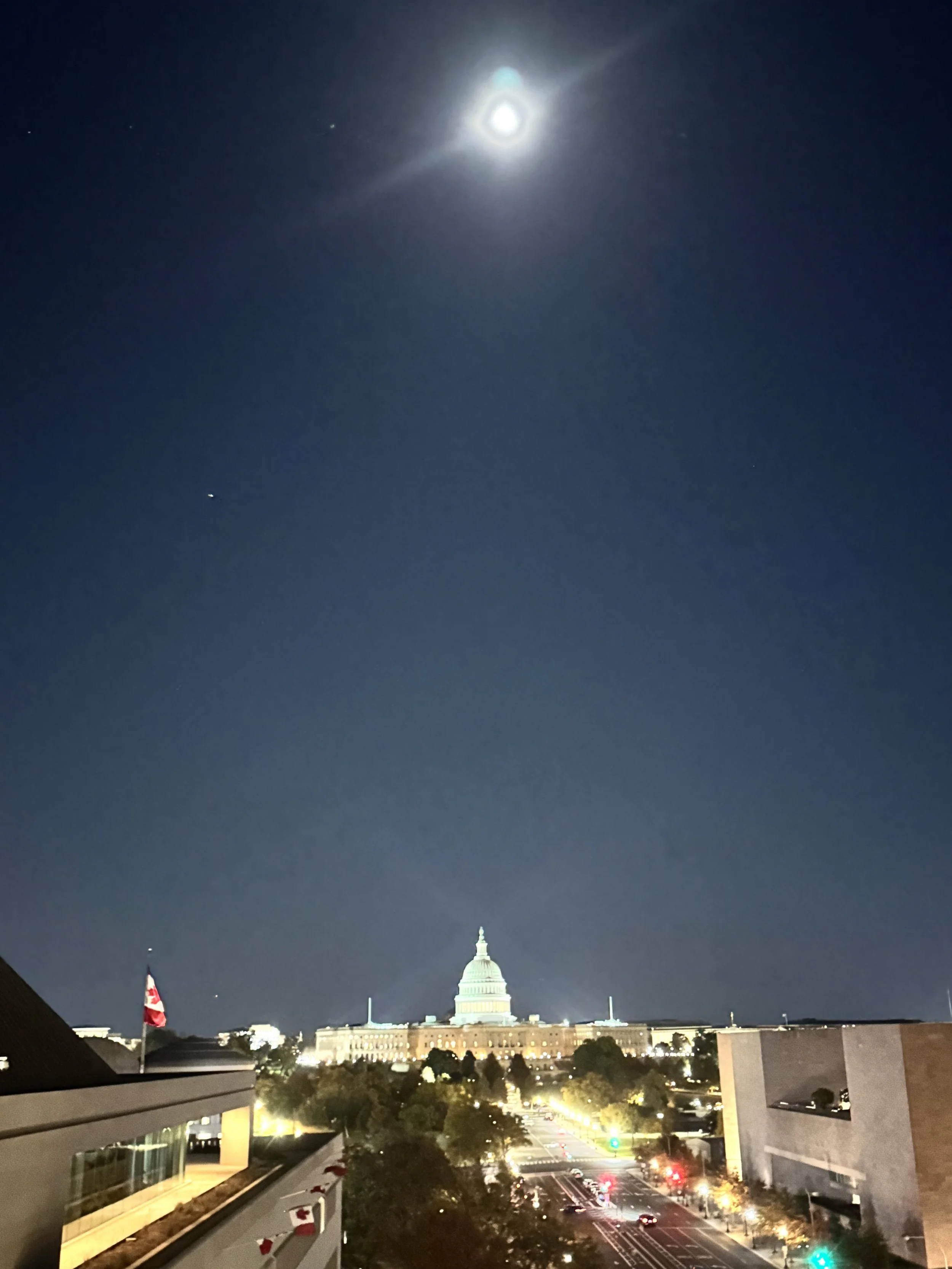Resilience in Washington DC – Lessons from a Challenging Year in Public Health
Washington, D.C. looked and felt different this year. The familiar excitement of the American Public Health Association Annual Meeting & Expo was met with something heavier. A government shutdown and payment freeze had begun and there was palpable anxiety leading up to and while visiting the city. At the airport and in the Metro stations, the National Guard stood watch. I had never seen the capital like this before. It was a strange backdrop for a conference built on openness and exchange held in a city paused by political gridlock.
The shutdown’s impact reached beyond mere inconvenience. It meant that many colleagues who work in federal agencies, scientists, program officers, and policy leads, could not attend or even present their research. This was the second time I had witnessed such disruption. The first was earlier in the year during the Johns Hopkins Global Oral Health Symposium, when federal staff were also barred from attending and speaking. Each absence at the annual meeting represented months of preparation lost and another reminder that decisions in Washington touch every corner of public health.
Yet amid that tension, moments of connection still emerged. One evening, Dr. Alice Horowitz graciously opened her home for dinner. Her hospitality created something rare: a space for warmth, laughter, and conversation when many felt anxious and uncertain. At a Hopkins alumni gathering, several federal employees attended despite the climate of unease. Their quiet presence carried weight; it was a gesture of commitment at a time when commitment itself felt fragile. These small acts—meals shared, conversations rekindled—became reminders of what sustains this field when the systems around it stall.
A lunch organized by the Oral Health Section added another layer to the reflection. The guest speaker came from industry, a perspective not often heard in this setting. But modern public health education teaches us to widen our table and gain perspective from a variety of directions, experiences and partners. Collaboration does not always begin in agreement. It begins in the willingness to listen. One participant described being inspired by sessions on technology, teledentistry, and data-driven equity. The idea was simple but powerful: innovation happens when unfamiliar voices share the same table.
Throughout the week, small gatherings carried as much meaning as the formal sessions. Breakfasts between poster presenters, hallway conversations after panels, and impromptu dinners did more than fill schedules, they rebuilt a sense of professional community. Still, it was impossible to ignore who wasn’t there. Conferences are often framed as resilience, proof that the field keeps moving, but attendance itself is a form of privilege. Those with secure jobs and institutional support could afford the registration fees, hotel rates, and flights. Others could not. For colleagues travelling from outside the United States, the barriers multiplied: visa delays, fears of secondary inspection, and the uncertainty of air travel during a shutdown. Gathering in person is meaningful, but it should never be mistaken for inclusion.
Despite lower attendance overall, the Oral Health Section stood out for its energy and momentum. The community water-fluoridation panel, organized in collaboration with five APHA sections, filled the room and sparked spirited discussion. The program included forty posters and ten oral sessions covering everything from workforce development to global partnerships. I presented on the Solidarity Dental Foundation’s experience using social media as a tool for public-health education and on the challenges of building oral-health programs within a school of public health that has no dental school. Those conversations reinforced that oral health is inseparable from the larger story of population health and equity.
Leaving Washington, I felt both pride and unease. Pride in the creativity and persistence of the oral-health community; unease at how fragile participation has become. The week revealed uncomfortable truths about access and opportunity. It also pointed toward what needs to change.
Three lessons stayed with me.
First, policy is personal. When government stalls, so does the ability of public health professionals to do their jobs. These are not abstract budget lines but people’s livelihoods and research lifetimes.
Second, gathering is privilege. Those who made it to Washington did so with the privilege of stable employment, institutional support, and passports that allow entry. Many could not justify the expense of registration and hotel. For international colleagues there is visa uncertainty, fear of secondary inspections and flight disruptions from government shutdown. True inclusion in public health cannot depend on who can afford to show up.
Third, resilience must mean reimagining access. The future depends on creating new ways to connect such as virtual collaborations, open-access publishing, shared mentorship networks, and community-driven forums that allow more voices to enter the conversation.
Public health strives to be about people finding ways to continue the work, even when the systems meant to support them falter. That quiet persistence, more than any conference attendance record, is what gives me hope.
Authored: Sujay Mehta



